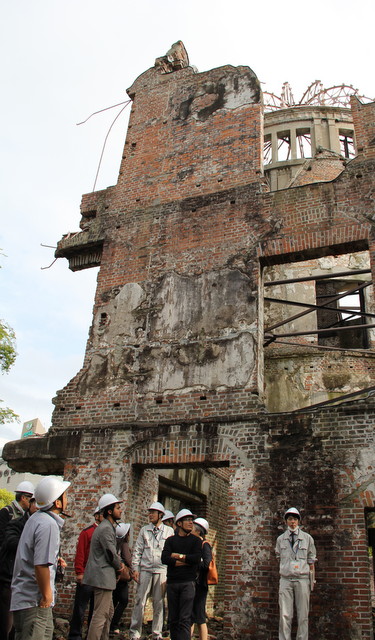April 30 2013, Hiroshima, Japan - UNITAR recently completed a training programme for 24 participants, from 15 countries, examining the nomination process for World Heritage Sites. Held 22 to 26 April, the workshop was the tenth annual cycle in the Management and Conservation of World Heritage Sites Series, and was subtitled World Heritage Serial Nominations and the Vital Role of Comparative Analysis.
The workshop was supported by Resource Persons from the United Nations Educational, Scientific and Cultural Organization (UNESCO); International Union for the Conservation of Nature (IUCN); International Council on Monuments and Sites (ICOMOS); Department of Conservation of New Zealand; and University of Hyogo.
The objectives of the workshop included:
- Reviewing the key elements of the World Heritage Regime, incorporating updates and current trends
- Explaining the principles of “Values-Based Heritage Management”
- Examining World Heritage Serial Nominations and the Vital Role of Comparative Analysis, identifying best practices and lessons learned
- Thorough reality-based practical exercises, extracting key concepts and common issues for given sites

- Enhancing long-term peer learning and exchange among the participants
The workshop addressed a number of areas that are fundamental to the World Heritage Sites nomination process, such as: implementation of the World Heritage Convention; criteria for the assessment of outstanding universal value; and preparing nomination files.
Underscoring the theoretical introductions and analyses presented, study tours formed an integral part of the workshop. Visits were be made to the World Heritage Atomic Bomb Dome, including rare access physically inside the dome itself, as well as to the World Heritage Itsukushima Shinto Shrine where participants were guided by a senior priest around the site.
In addition, and key to the facilitation of learning at the workshop, was a major practical exercise where participants worked in small groups to analyse real world case studies and apply the theoretical and practical knowledge gained in the workshop.

